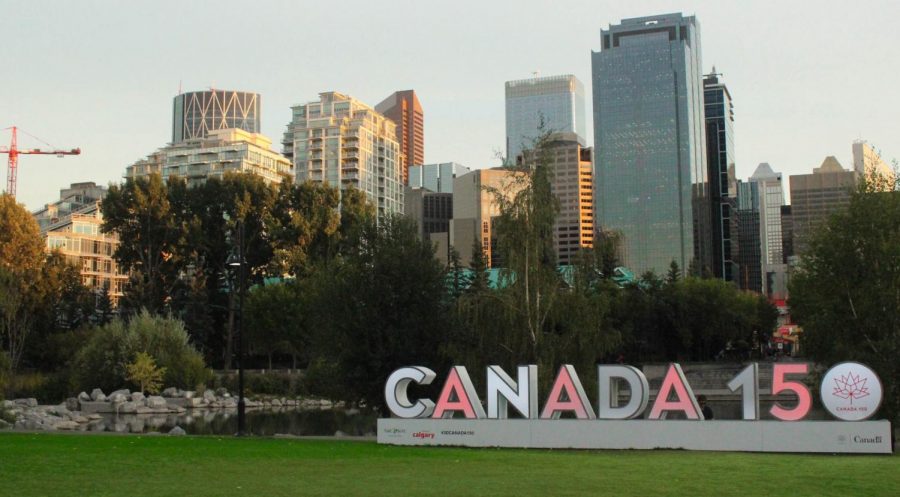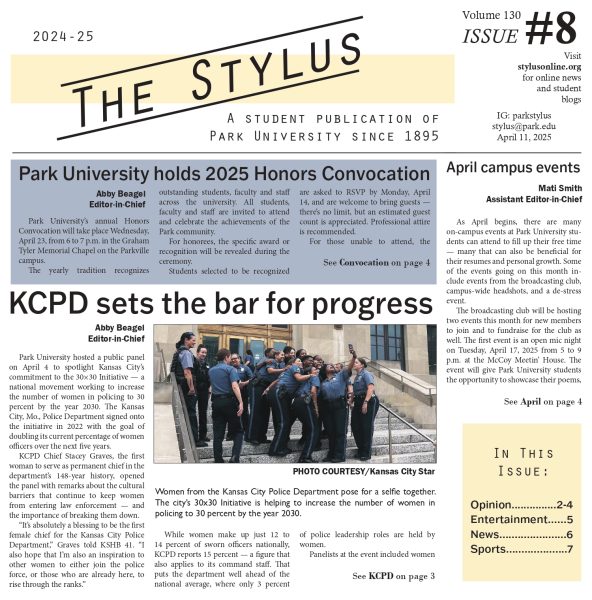Communications in Canada
Park Student participates in journalism program from afar
2017 marks Canada’s 150th year
The Economist Intelligence Unit rated the Canadian city of Calgary as the 5th most livable city in 2015 and the World’s cleanest city per Mercer Global Financial in 2014. It is a beautiful city, featuring architecturally unique building along a massive skyline, with inspiring artwork, a healthy economy, and happy citizens.
I visited our “neighbors to the north” in Calgary twice this semester to write for one of their universities. I’ve had the opportunity to write for them remotely from the United States since August before visiting.
The University of Calgary is located in Alberta. The province, which sits just above Montana, is home to an independent student newspaper called The Gauntlet. Staff for the Gauntlet is students with a passion for media, news, and information. This year’s staff consists of eight editors, a volunteer coordinator and a graphic artist as well as alumni and volunteers.
The Gauntlet is a full-color magazine, including ads, published in 40 to 60-page ranges once a month. Story lists are emailed weekly from editors of the sections you indicated interest in. While writing remotely from the U.S. I obviously wasn’t able to claim stories that required me to be in Calgary. So I claimed and pitched stories I could do from here. Emails are sent to every volunteer. It’s important to claim a story before someone else does and finish stories in time in order to claim or pitch more stories. Fifty plus pages is a lot to fill, so there are many stories that need to be done regularly and consistently.
Gathering stories is challenging from the U.S. To ensure my information was relatable and valid, I had to speak with Calgary residents and Gauntlet editors. I used their stylebooks and resources and, as always, use the internet for information relevant to Canadians. This gave me a really good idea of what it meant to be a reporter as I scoured through countless newspapers, magazines, photos and interview audio clips.
The U.S. is typically viewed as an individualistic society, in which we are taught that “I” is more important than the “WE”. Our newspapers here focus on primarily the U.S. Some international stories occasionally end up on our screens but most of what we see and hear is relevant to our country alone.
News in Canada, however, is a collection of stories from all over the world. Their society is both individualistic and collective but the ways in which they deliver news and information is for the good of the collective group and not just the individual.
The Calgary Metro is a local newspaper printed Monday through Friday, with Friday encompassing Saturday and Sunday as the weekend issue. Flipping through a weeks’ worth of issues, I noticed a difference immediately. The media leaders want citizens to be aware of what is going on all over the world and around the corner, whether it affects them directly or not. I can appreciate this kind of transparency. Stories came from all over: France, Germany, Australia; even the U.S., which made it easier to grasp the benefit of this free and daily publication.
My experience in Canada was worth it and enjoyable. Writing in Canada is pretty similar. There are still deadlines, stylebooks, manuals and pitches just like here. But there are also a few differences and I learned three important things overall: make your deadlines early if possible, expand your sources for news and do so while incorporating a collectivist way of thinking.
Your donation will support the student journalists of Park University. Your contribution will allow us to cover our annual website hosting costs, freeing up other funds for equipment, printing and training.








